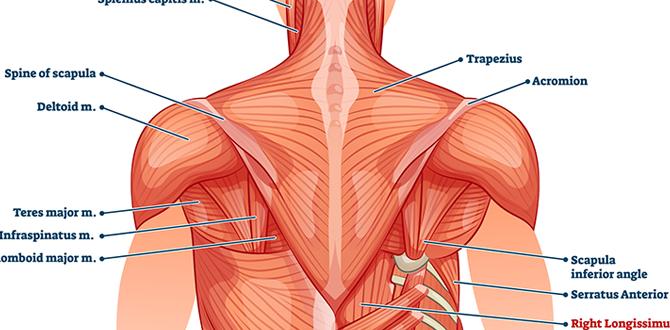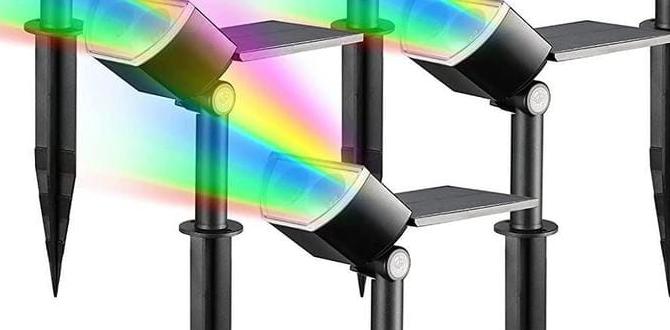When you think of a garden, do you picture flowers and veggies growing happily? What if I told you that tiny creatures called pill bugs might be there, too? Those little bugs look like miniature armadillos, but some people wonder: are pill bugs bad for gardens?
Many gardeners love these critters. They help break down dead plants and recycle nutrients. But others worry they might hurt healthy plants. Imagine planting a beautiful flower. Then, you see it getting nibbled on. Could that pesky pill bug be the reason?
In this article, we will dig deeper into the world of pill bugs. We will explore their role in gardens. You might be surprised by what you find out!
Are Pill Bugs Bad For Gardens? Uncovering Their Impact
Are Pill Bugs Bad for Gardens?
Pill bugs, often seen in gardens, may surprise you. They actually help break down dead plants and improve soil health. But, do they harm your plants? Not usually! These little critters prefer decaying matter over living vegetation. However, an overpopulation can indicate trouble, like too much moisture. Watching for balance is key. The next time you spot a pill bug, remember they might be more friend than foe!Understanding Pill Bugs
Definition and classification of pill bugs. Common habitats and behavior in gardens.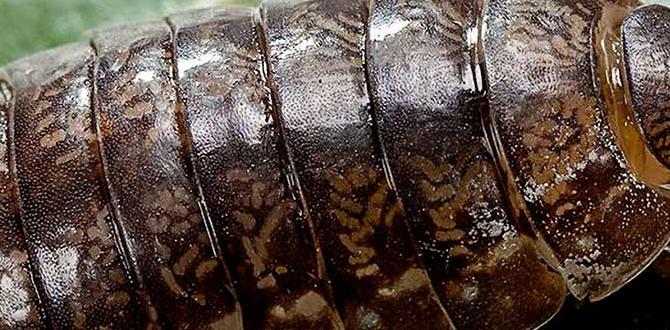
Pill bugs are small, oval creatures often found in gardens. They belong to the isopod family and are also called roly-polies. These tiny animals enjoy damp, dark places. You can usually spot them under rocks, leaves, or logs. Pill bugs feed on dead plant matter. This behavior helps break down waste in the garden.
- Size: They are about 1 inch long.
- Color: Mostly gray or brown.
- Habitat: Prefer moist environments.
Are pill bugs bad for gardens?
No, pill bugs are not bad for gardens. They actually help by breaking down dead plants and enriching the soil. This can benefit your plants!
Role of Pill Bugs in the Ecosystem
Decomposition and nutrient cycling contributions. Interaction with other garden organisms.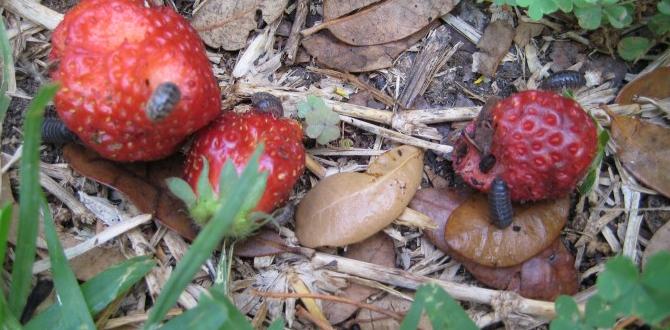
Pill bugs are tiny heroes in the garden! They munch on dead plants and leaves, breaking them down into rich, nutrient-dense soil. This process, called decomposition, helps feed other plants. They also share the garden with various organisms like worms and beetles, interacting and maintaining balance in the ecosystem. Think of them as the clean-up crew, working tirelessly without a cape. Here’s a fun fact: they can eat up to 50% of their body weight in plant material daily!
| Contribution | Description |
|---|---|
| Decomposition | Pill bugs break down organic matter, enriching the soil. |
| Nutrient Cycling | Their waste adds essential nutrients back into the earth. |
| Interaction | They cooperate with other garden critters for a healthy ecosystem. |
Impact on Garden Health
Potential benefits to soil health and structure. Circumstances in which pill bugs might become harmful.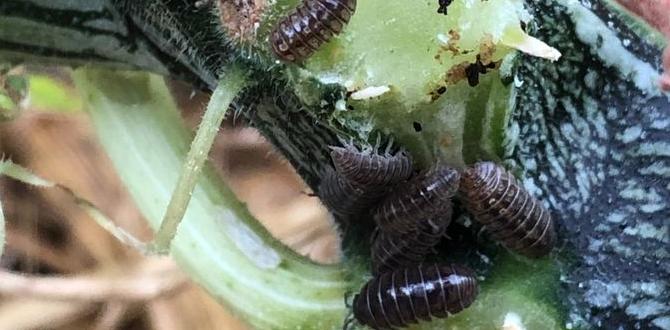
Pill bugs can help gardens in different ways. They break down dead leaves and plants. This makes soil healthy and rich. Healthy soil grows strong plants. However, they can be a problem in certain cases. If there are too many pill bugs, they might harm young plants. They eat roots and stems, slowing growth.
- Benefits to soil health:
- Decomposing material improves soil quality.
- Helps in aerating the soil structure.
- When they become harmful:
- Too many pill bugs can damage roots.
- Young plants may struggle to grow.
Are pill bugs bad for gardens?
Sometimes they are, especially if there are too many. They can harm young plants but also help soil health. Finding the right balance is key.
Signs of Pill Bug Infestation
Identifying high populations in garden settings. Symptoms of damage caused by pill bugs in plants.
Pill bugs, also known as roly-polies, often signal a garden problem when you see them in large numbers. These little critters can munch on your plants, leaving behind unhappy greens. Look for signs like swirly holes on leaves or stunted growth in your plants. If your garden feels more like a buffet for pill bugs, it might be time to take action!
| Signs of Pill Bug Damage | Description |
|---|---|
| Swirly Holes | Leaves with odd holes, like they were attacked by tiny hungry monsters. |
| Stunted Growth | Plants seem to be taking a long nap and not growing much. |
| Overall Wilting | Plants looking droopy as if they’re sad about their pill bug visitors. |
Comparing Pill Bugs to Other Garden Pests
Differences between pill bugs and other common pests. How to determine if pill bugs are a significant threat.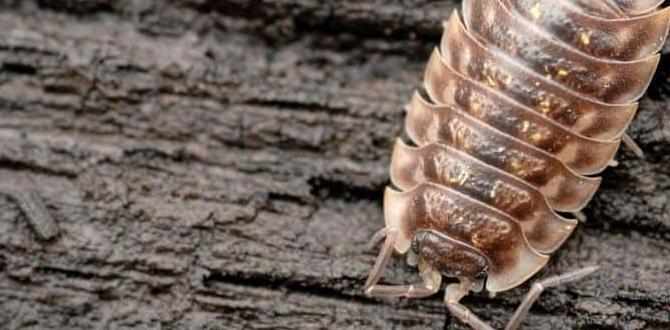
Pill bugs are different from other garden pests like aphids or slugs. They have hard shells and curl up when scared. Unlike many pests, pill bugs don’t eat living plants. They only eat dead leaves and decaying matter. This can actually help your garden stay healthy.
To know if pill bugs are a problem, look for these signs:
- Damage on young plants
- Large groups of pill bugs in one area
- More than 5 pill bugs per square foot
If you see these signs, they could be a threat. If not, they are mostly harmless, helping break down old plant material.
Are pill bugs harmful to gardens?
Pill bugs are not harmful to gardens. They help with composting by eating dead plant matter, which enriches the soil.
Management Strategies for Pill Bugs
Organic methods to control their population. Preventative measures for reducing pill bug attraction.
Pill bugs can be a nuisance in gardens, but fear not! You can manage their population with some simple organic methods. Start by using diatomaceous earth around your plants. This natural powder works like tiny ninja spikes on their armor. Next, try trapping them with damp newspaper. They love it! Just check daily and toss them away (they won’t mind, promise!). To prevent their return, keep the area clean and avoid overwatering. A dry home is an uninviting one for pill bugs!
| Method | Description |
|---|---|
| Diatomaceous Earth | Sprinkle this powder around plants to deter pill bugs. |
| Newspaper Traps | Set damp newspapers to catch pill bugs. Dispose of them daily. |
| Cleanliness | Clear debris and avoid water buildup to keep gardens dry. |
Encouraging Beneficial Insects Alongside Pill Bugs
Companion planting and biodiversity benefits. Balancing ecosystems within the garden environment.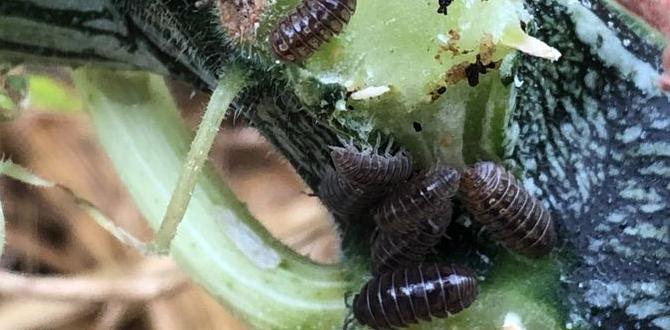
Many gardeners love to create a balanced eco-system in their gardens. One way to do this is through companion planting. This means planting different types of plants together. They help each other grow and keep pests away. Overall, this method supports biodiversity.
- Encourages good insects to visit.
- Improves soil health.
- Reduces garden pests naturally.
Are pill bugs beneficial for gardens?
Yes, pill bugs can help gardens stay healthy. They break down dead plants, making nutrients for the soil. This keeps the garden lively and green.
Conclusion
In summary, pill bugs are not bad for gardens. They help break down dead plants and improve soil health. However, too many can damage young plants. You can manage their numbers by adding barriers or practicing good garden hygiene. For more tips on garden care, keep reading and explore other helpful resources!FAQs
What Role Do Pill Bugs Play In Garden Ecosystems, And Are They Beneficial Or Harmful?Pill bugs are small, crusty insects that live in gardens. They help break down dead plants and leaves. This process makes the soil healthier for plants. We can think of them as nature’s clean-up crew! They are generally beneficial because they help plants grow better.
How Can Pill Bugs Impact Soil Health And Plant Growth In A Garden Setting?Pill bugs help our gardens by breaking down dead plants and leaves. This makes the soil richer and healthier. Healthy soil lets plants grow strong and big. When you see pill bugs, think of them as tiny gardeners!
Are There Specific Plants That Are More Susceptible To Damage From Pill Bugs?Yes, some plants are more prone to damage from pill bugs. They really like soft, juicy plants. Vegetables like tomatoes and lettuce often get hurt. Young seedlings and tender leaves are at more risk. If you grow these, keep an eye out for pill bugs!
What Are Effective Methods To Manage Or Control Pill Bug Populations In Gardens?To control pill bug populations in your garden, start by keeping the area clean. Remove old leaves and debris where they like to hide. You can also use barriers like crushed eggshells around plants. This makes it tricky for them to move around. Finally, check the soil moisture. Pill bugs like damp spots, so watering less can help!
How Do Environmental Conditions, Such As Moisture And Temperature, Influence Pill Bug Activity In Gardens?Pill bugs, also known as roly-polies, like damp and warm places. When it’s moist, they come out to play and look for food. If it’s too dry or too cold, they hide under rocks or leaves. In gardens, good moisture and warm temperatures help them stay active and healthy. So, keeping the soil damp makes pill bugs happier!



